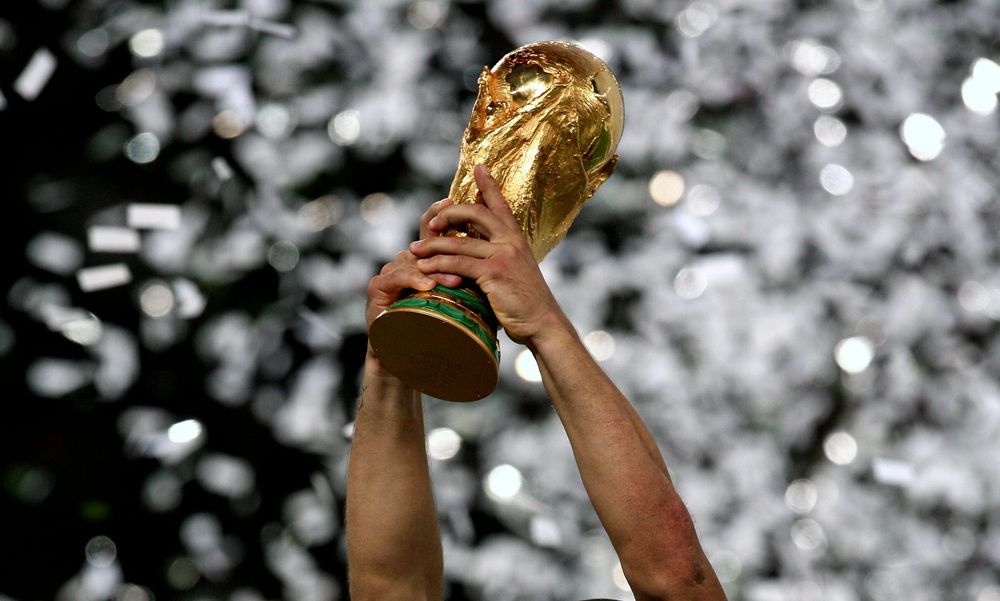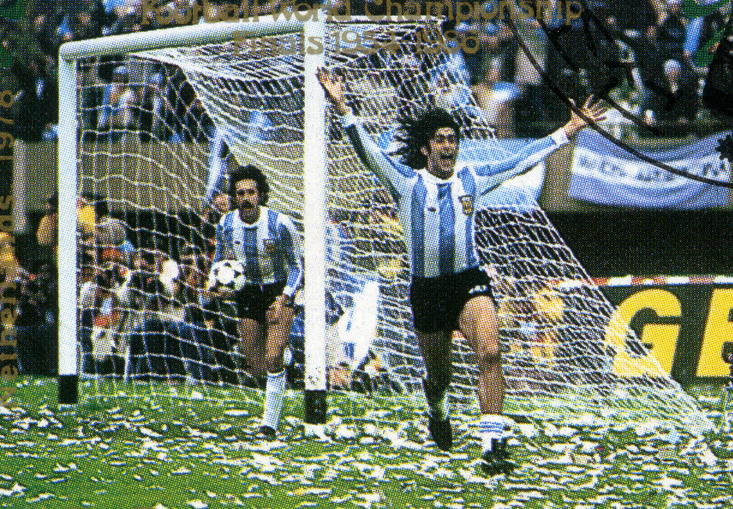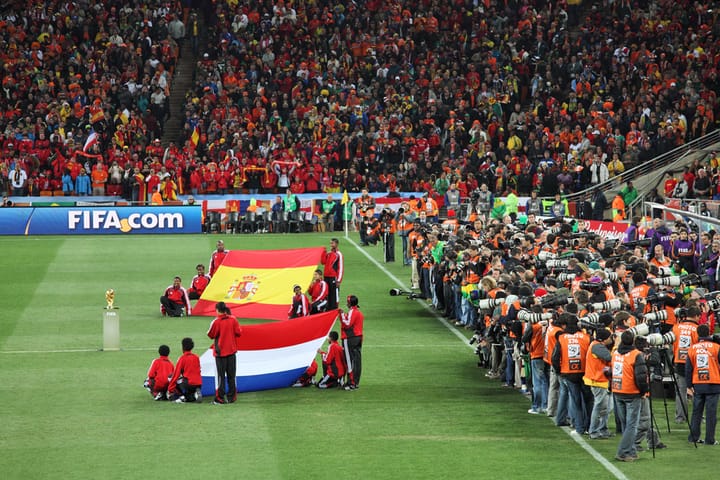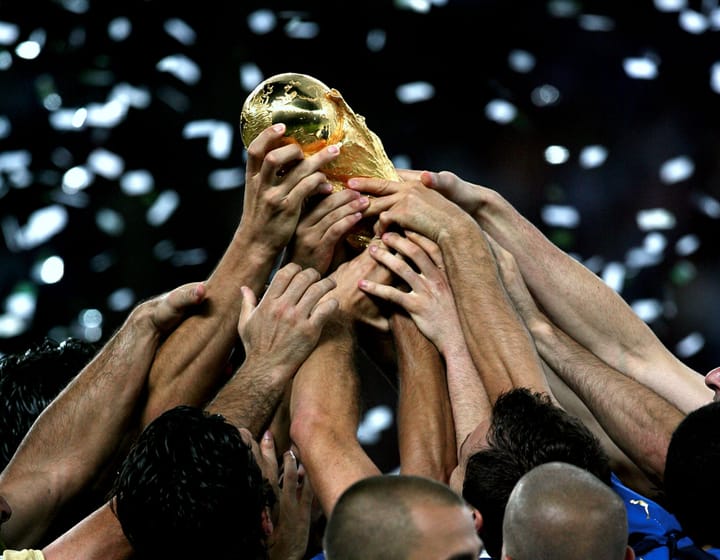These Were the Five Best Players of the 1986 FIFA World Cup
The 1986 World Cup ranks amongst the most legendary World Cups ever. In this article we highlight five of the best players in the World Cup.

The 1986 FIFA World Cup, hosted in Mexico, stands as an undeniable high watermark in the storied history of global soccer. The tournament not only delivered extraordinary matches but also showcased some of the most talented soccer players the world has ever seen. From goal-studded games to nerve-wracking penalty shootouts and breathtaking solo performances, the tournament had it all.
Thirty-seven years have passed since that memorable summer, yet the stories, feats, and legacies of the players still echo in the minds of soccer enthusiasts worldwide. This article aims to relive the magic of the 1986 World Cup by casting the spotlight on five extraordinary players who left an indelible mark on the tournament. Each athlete's unique skills, audacity, resilience, and love for the game shaped the tournament's trajectory and continue to inspire future generations of soccer players. Whether you're a seasoned soccer fan or new to the world of soccer, you'll enjoy this journey back in time to the unforgettable moments of the 1986 FIFA World Cup.
Diego Maradona
Diego Armando Maradona, often regarded as one of the greatest soccer players of all time, stamped his legacy on the beautiful game during the 1986 FIFA World Cup in Mexico. He was the heart and soul of the Argentina team that won the tournament, playing a role in over half of Argentina's 14 goals, scoring five himself and assisting five more. Maradona's performances were often nothing short of magical, combining remarkable skill, a deft touch, and exceptional game intelligence.
Perhaps the most memorable match from Maradona's 1986 World Cup campaign came in the quarterfinals against England, where he scored two of the most famous goals in soccer history within a span of just four minutes. The first goal was the infamous "Hand of God," where Maradona punched the ball into the net with his left fist, fooling the referee into thinking it was a legitimate header. This goal remains one of the most controversial in World Cup history.
The second goal, scored only minutes later, demonstrated Maradona's breathtaking skill and control. Picking up the ball in his own half, he danced past five England players before rounding the keeper to score what would later be known as the "Goal of the Century." This moment encapsulated Maradona's genius and is often used as a testament to his remarkable talent.
Maradona continued his exceptional form throughout the tournament, assisting Jorge Valdano in the final against West Germany and proving instrumental in Argentina's 3-2 victory, securing their second World Cup title.
Despite the controversy and the intense pressure of leading his nation, Maradona's performance at the 1986 World Cup was a perfect blend of audacity and soccer genius. He showed the world why many consider him one of the greatest players ever to grace a soccer pitch. Maradona was awarded the Golden Ball for the best player of the tournament, capping off an unforgettable campaign. His 1986 World Cup journey, marked by drama, genius, and ultimate triumph, remains one of the most iconic in the annals of soccer history.
Jorge Valdano
Jorge Valdano, born on October 4, 1955, in Argentina, was a crucial figure in the country's triumphant 1986 World Cup campaign. A skilled forward with an eye for goal, Valdano complemented the genius of Diego Maradona with his intelligent movement, tactical awareness, and clinical finishing.
During the 1986 World Cup in Mexico, Valdano was an integral part of the Argentine squad. He scored a total of four goals throughout the tournament, underlining his vital contribution to the team's offensive prowess. His goals came against South Korea (2) and Bulgaria,, but it was his goal in the final that remains the most memorable.
In the grand final against West Germany, Valdano scored Argentina's second goal, giving his team a crucial advantage. Despite a fierce comeback from the Germans, Argentina eventually won the match 3-2, securing their second World Cup title.
Valdano's partnership with Maradona was instrumental throughout the tournament. The pair combined effectively, with Valdano's intelligent runs often creating space for Maradona to exploit. This allowed Maradona the freedom to dictate play and demonstrate the skills that made the tournament his own.
Gary Lineker
Gary Lineker, the English forward known for his poacher's instinct and clinical finishing, truly made his mark on the international stage during the 1986 FIFA World Cup in Mexico. Despite England's exit in the quarterfinals, Lineker emerged as a leading light, winning the Golden Boot award as the tournament's top scorer with six goals.
His performance in the World Cup was remarkable right from the group stage. After a slow start for England, with a loss against Portugal and a draw against Morocco, it was Lineker's hat trick against Poland that revitalized England's campaign and secured their passage into the round of 16. This was the first hat trick by an English player in a World Cup since Geoff Hurst in the 1966 final.
In the round of 16, Lineker once again proved instrumental, scoring the crucial goals against Paraguay that carried England into the quarterfinals. His goal-scoring prowess continued even when England faced the indomitable Argentina, led by the tournament's standout player, Diego Maradona. Lineker scored England's only goal in a match that they eventually lost 2-1, in large part due to Maradona's legendary performance.
Despite the quarterfinal exit, Lineker's goal-scoring exploits left an indelible mark on the tournament. His six goals in total not only won him the Golden Boot but also marked him out as one of the tournament's standout players. His performances brought him to the attention of FC Barcelona, leading to a move to the Spanish giants later that year.
Michel Platini
Michel Platini, one of the greatest soccer players France has ever produced, was an essential part of Les Bleus' journey to the semifinals in the 1986 FIFA World Cup held in Mexico. Known for his exceptional skill, vision, and creativity, Platini, as the team's captain, was the driving force behind France's campaign.
In the 1986 World Cup, Platini did not quite reach the heights of his performances in the 1984 European Championship, where he had been instrumental in securing victory for France. However, he still managed to make a significant impact. Despite dealing with injuries, Platini showcased his quality by scoring two goals and setting up several others, proving vital in France's progression to the latter stages of the tournament.
His leadership, creativity, and ability to control the tempo of a game were on full display throughout the tournament, most notably in the round of 16 match against Italy. Platini was instrumental in helping France secure a 2-0 victory over the reigning World Champions, setting up a quarterfinal clash with Brazil.
In an epic quarter-final encounter against Brazil, often cited as one of the greatest matches in World Cup history, Platini missed a penalty in the shootout, but his team still advanced to the semi-finals. Unfortunately, France's campaign ended in the semi-finals with a 2-0 defeat to West Germany, the same team that had denied them in the semi-finals in 1982.
Preben Elkjær
Preben Elkjær, one of Denmark's most revered soccer players, was a standout performer in the 1986 FIFA World Cup held in Mexico. Known for his speed, strength, and formidable attacking prowess, Elkjær was integral to Denmark's 'Danish Dynamite' team that impressed soccer enthusiasts worldwide with their attacking style of play.
In the 1986 World Cup, Elkjær showcased his striking ability to its fullest. His most memorable performance came during Denmark's 6-1 demolition of Uruguay in the group stage, where he scored a remarkable hat-trick. His other goal came in a convincing 2-0 win against Scotland, helping the Danish team win all three of their group stage matches and advancing them to the knockout stage.
Elkjær's performances weren't just about scoring goals. He was well-known for his physical style of play, his tireless running, and his ability to single-handedly take on and break down defences. His partnership with fellow forward Michael Laudrup was particularly potent, and their combination play was a major factor in Denmark's exciting attacking play.
Despite Denmark's exit in the Round of 16 after a heavy defeat to Spain, Elkjær's performances were highly acclaimed. He was a vital part of a Danish team that, for the first time, made the world take notice of Danish soccer at the international level.




